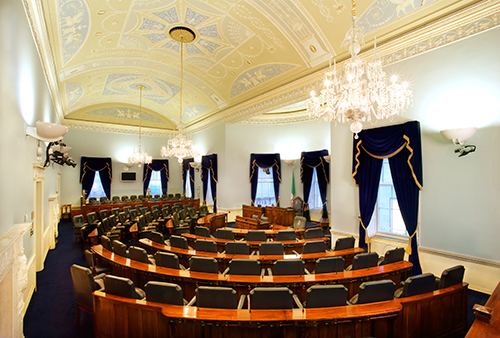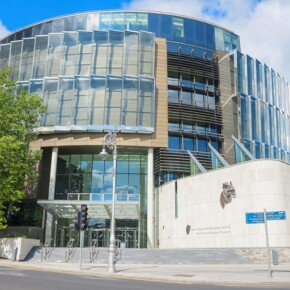All university graduates to be granted Seanad votes
Mike Finnerty 28 Nov 2023
Hundreds of thousands of more people could be able to vote in Seanad elections.
Minister Darragh O’Brien introduced plans to Cabinet that would extend voting rights to all graduates across Ireland.
At present, only those who have graduated from the National University of Ireland universities and Trinity College are eligible to vote in Seanad elections.
People who went to the University of Limerick, Dublin City University or Technological Universities are excluded from voting at present.
University of Limerick graduate Tomás Heneghan took a case to the High Court, who argued that restricting voting rights to graduates of specific universities was “unconstitutional.”
A 1979 referendum granted the right for all third-level graduates to vote in Seanad elections but has been the subject of decades-long delays and roadblocks.
The referendum, held in July 1979, asked voters whether the seventh amendment of the Irish constitution should be amended to extend Seanad representation of all third-level graduates across Ireland.
On that occasion, 92.8% of voters voted Yes.
The National University of Ireland and Dublin University constituencies both elect three senators apiece, but the constituencies will be merged into a new six-seater constituency, simply titled Higher Education, comprising of all graduates across Ireland.
The six-seater is the brainchild of Fianna Fáil senator Malcolm Byrne, who said in May “it is now a matter of urgency that action is taken in advance of the next Seanad elections and that the will of the people 44 years ago is given effect.”
“This will be a significant measure in reforming the Seanad franchise,” he said.
Senators will be elected through proportional representation by way of single transferable vote, with voting likely to be carried out through postal vote.
A ruling from the Supreme Court has mandated Government to have the changes and reform in place by the end of May 2025.
It is unknown if the changes will be in place in time for the next general election, which must take place by March of that year, meaning that the reforms may not be in place until 2030.
In the last Seanad election in 2020, roughly 177,000 people were eligible to vote in those constituencies, but turnout was poor in both instances.
The expansion of franchise means that up to one million people could be added to the register when all third-level graduates in Ireland are factored in.
Census data from last year showed that 40,600 people completed a degree from a higher education institution between 2016 and early 2022.
Turnout was 34.1% in the National University of Ireland constituency, while just 23.1% of those eligible to vote in the Dublin University constituency cast a vote.
43 of the 60 seats in the Seanad are voted on by an electorate of 1169, the sum total of all elected representatives in the nation, 11 are chosen by the Taoiseach, while graduates elect the remaining six.
Government has stated they will engage with the Department of Further and Higher Education and draft an analysis on the costs, benefits and impacts of extending voting rights in this instance.











